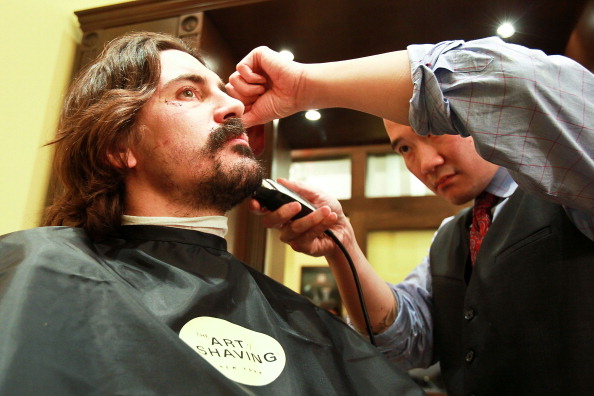We do need serious mental health policy change, but we also need a change of heart

This week I shaved off my beard to leave a resplendent moustache. I haven’t done Movember before but this year, I wanted to play a part. Last year, 75 per cent of suicides were men. I’ve always been cautious about campaigning along identity lines, but there is clearly a specific issue with men’s mental health. Yes, we need a change in national mental health policy, but without a change of heart about how open men are willing to be about their mental health it won’t help.
Eight years ago I had a breakdown, as I struggled with anxiety and depression. I was off work for a couple of months and only through the help of cognitive behavioural therapy and Prozac was I able to get back to work. I’ve been mostly well since then, but continue to take my medication. One of the biggest tools has been my willingness to say when I am not doing well and ask for the help I need. There are plenty of things I’m not good at, but I’ve never been particularly concerned about showing vulnerability. Most men, however, are less willing.
According to research by the Priory Group, a mental health provider, 40 per cent of men have never spoken about their mental health. Almost 30 per cent of these are because they have been “too embarrassed” to do so. Of those polled, 40 per cent said it would take thoughts of self-harm or suicide for them to seek help. Last year 4,129 men committed suicide, 75 per cent of the total. Let me be clear, the right suicide rate, regardless of gender, is zero. But there is a specific issue with male rates being consistently and disproportionately high. We can’t get to zero without addressing the problem as we find it. So, what do we do?
It’s clear that wider policy change is needed. There are lots of things we should consider: minimum waits for mental health care in line with urgent physical health referrals, making better use of technology to provide faster support, offering a wider range of support from the moment someone seeks help, so medication is given as part of wider support, not as a first and sole response. Around 1 in 4 people in the UK experience a mental health problem each year. We can’t tackle this without the right national policy framework in place. But that’s not enough.
With the best will in the world, the right policies aren’t going to make a dent in tackling the scale of male mental health problems. What is as urgent as policy change, is a change of heart. The number of men struggling in silence with mental health issues and the rate of male suicides will not fall unless the mindset behind it changes. It’s not an easy change, but it is an important change. We need to shift the debate around mental health to ensure men are better able to show vulnerability. This is urgent, must be led by men and it is a process that requires courage. It must include men of all stripes. I’m a self-confessed Buddhist Blairite, so maybe it makes it easier for me to talk. I live in London, which as a result of its size, creates a wealth of experiences. A change in attitude has to go to every man and boy across the country.
It requires a core change in belief, that it is not strong but weak to hide vulnerability. It isn’t strong, but weak, to let down those around you by not asking for help. It takes real courage to ask for help. Real strength is being open.
So this winter, as men grow their moustaches and the debate around mental health returns, I’m asking male readers to take responsibility. However you feel, be open. Ask other men how they are. Create the space for vulnerability. We can’t save lives without talking about them.